With vivid memories of WNO’s outstanding Death in Venice last season, expectations ran high for this new production of Benjamin Britten’s operatic masterpiece. We were not disappointed, and largely the result of a seasoned cast, an augmented chorus and some terrific playing from the orchestra under the inspired direction of Tomáš Hanus.
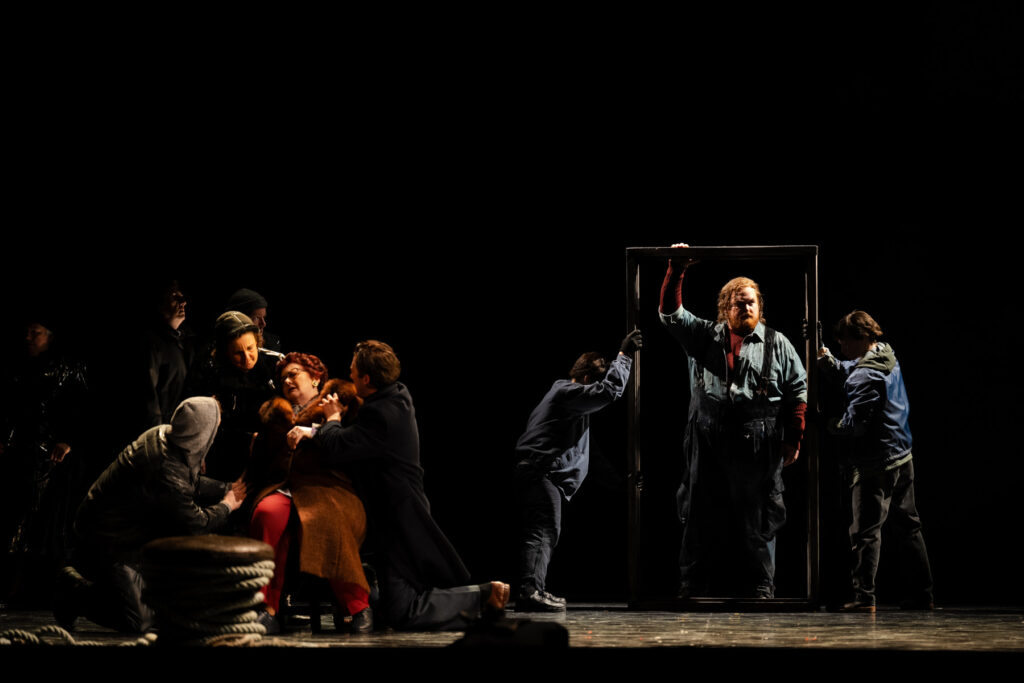
Other factors that sustained interest were Melly Still’s thought-provoking direction, an individual approach emphasising fluid movement from a quartet of actor/dancers on a mostly bare stage. That these non-singing figures were women with the body language of boys seemed to create an ambivalent twist to echo Britten’s own encounters with young people. Intentional or not, the foursome manipulate ropes in symbolic movements that contain and restrain the local fishing community, a malevolent presence of public opinion who form an unpredictable and frequently hostile mob which Still likens, in her booklet note, to a “tangible sense of imminent chaos being kept in fragile check”.
The tangible sense of abuse associated with Grimes is not entirely one-sided as we see John, a new apprentice (played by Maya Marsh) land a punch on her master, bringing further ambivalence within Still’s concept. This may not be a feminist interpretation, but it underlines the universal truth that abuse begets abuse. At one point, even Ellen Orford thumps Grimes in her frustration.
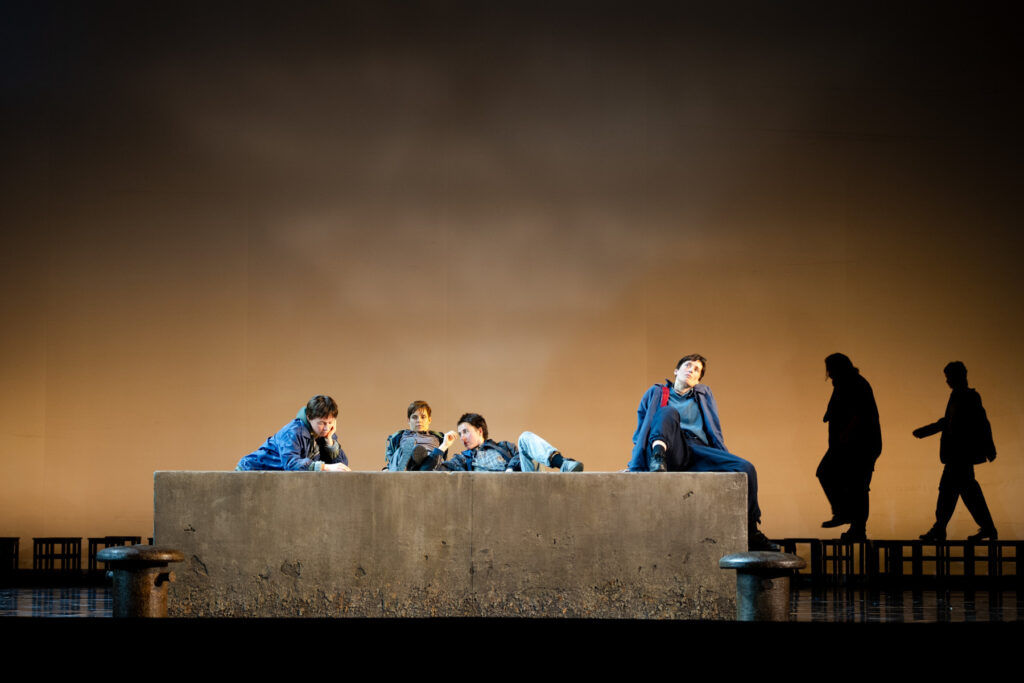
Elsewhere, Still has some provocative ideas about the “Borough”, deciding to allude to the village pub with hand-held door and window frames, presumably to hint at the fragility of the community and its relationship to the sea. Intriguing or distracting, Chiara Stephenson’s economical props allow plenty of space for the assortment of hypocrites, schemers and leering onlookers, all variously kitted out by Ilona Karas and redolent of the 1980’s. Except for a handful of capstans, the stage is bare but periodically decked out with a fishing net, concrete-looking blocks (sea defences?) and an occasional mast that, to my mind, conjured a crucifix. No less portentous is the boat that looms perilously over the cast, forming a guilty reminder for Grimes of the boy who died in his service, his coffin carried across the stage during the Prologue.
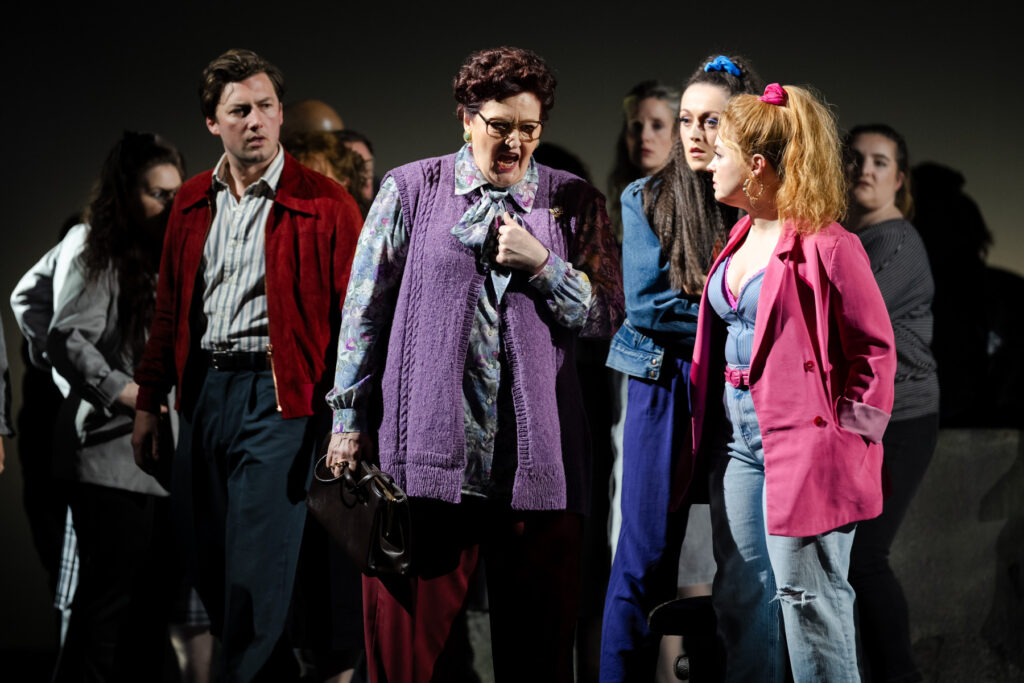
As a brutal portrait of intolerance, WNO’s Grimes is still hugely relevant and, after 80 years, has lost none of its potency or emotional punch. No surprise that its 1945 premiere prompted one commentator to claim the work as being “the most important opera since Purcell”. That said, neither the music nor Montagu Slater’s libretto were initially fully comprehended, one critic complaining that Peter Pears in the title role was “not completely convincing as a sadist”.
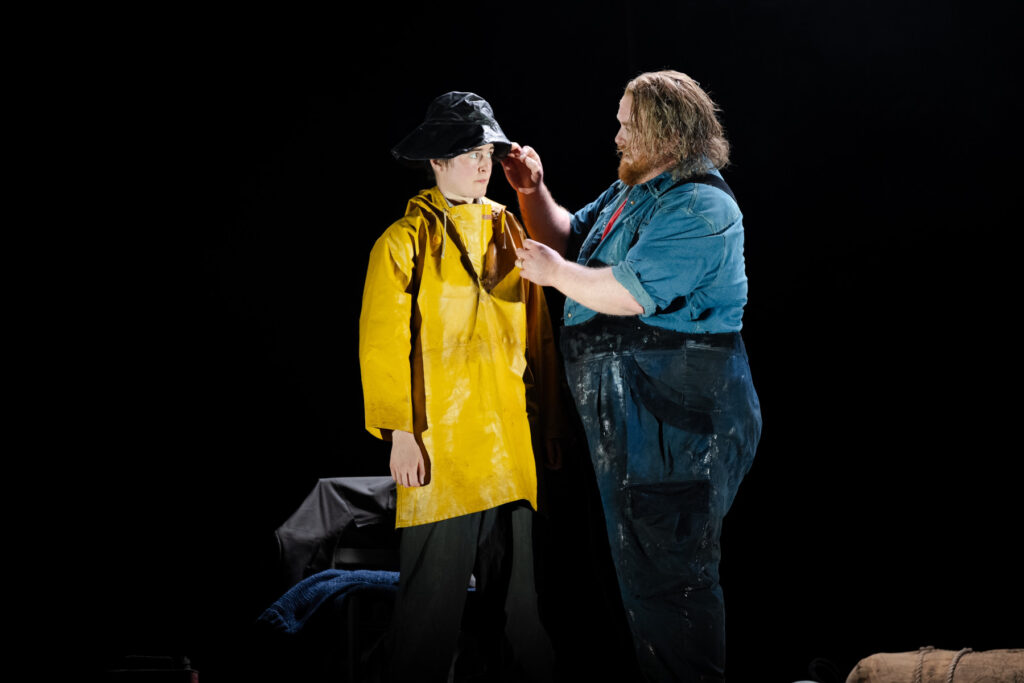
No such reservations with Nicky Spence as Grimes who gives a rounded and sympathetic portrayal of the hapless misfit, an interpretation finding an ideal balance between tyrant and visionary, formidable yet faraway. As a tortured individual, he inhabits a gruff stubbornness in his refusal to conform, tempered by a determination to find a ‘safe harbour’ in the arms of the school mistress Ellen Orford with whom we see brief tender exchanges. His Grimes is no sadist, yet he fails to control a temper, lashing out at the woman he loves and the boy who has fatally agreed to be his apprentice. There’s heft and refinement in equal measure, with Spence shaping a wonderfully spun legato to his ‘Great Bear’ meditation – its challenges dispatched with ease – and his appeals for a sheltering home in the final scene tug at our sympathies.
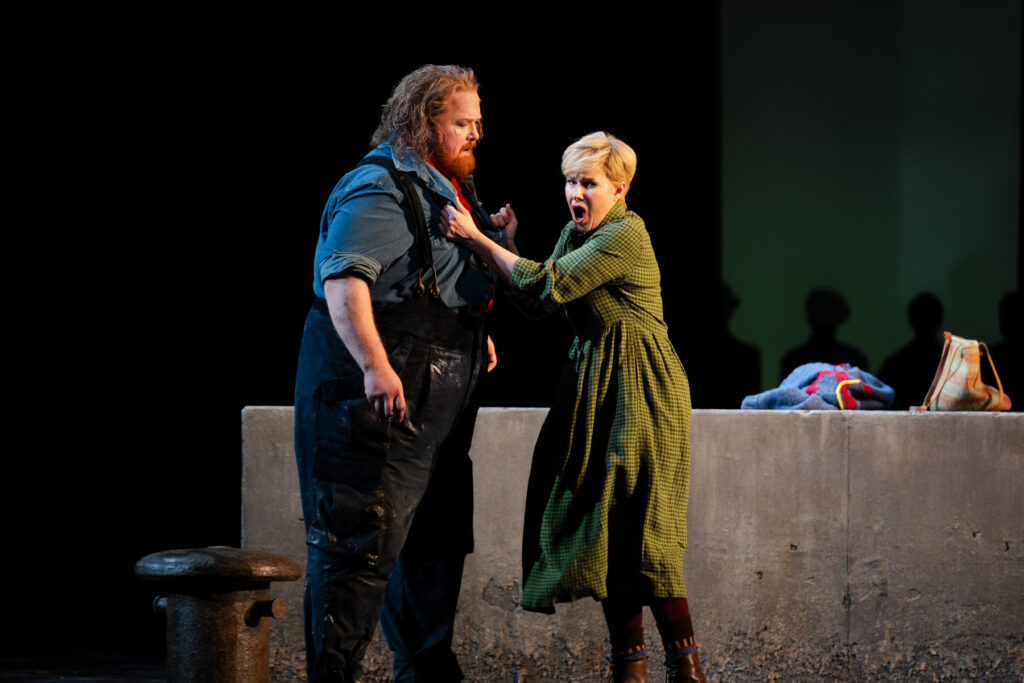
There’s a solid core to his tenor, regrettably lacking in the vibrato-heavy soprano of Sally Matthews whose Ellen impresses more with her stage presence, though her pleas for tolerance in ‘Let her among you without fault’ and her embroidery aria are both touching. Supporting roles are well characterised; notably Catherine Wyn-Rogers as the drug addicted busybody Mrs Sedley, and Sarah Connolly’s no-nonsense landlady and Auntie to the sluttish nieces Fflur Wyn and Eiry Price. Elsewhere, David Kempster is a worldly-wise Captain Balstrode, Dominic Sedgwick a man-about-town Ned Keene, while Oliver Johnston persuades as the Methodist minister with a roving eye.
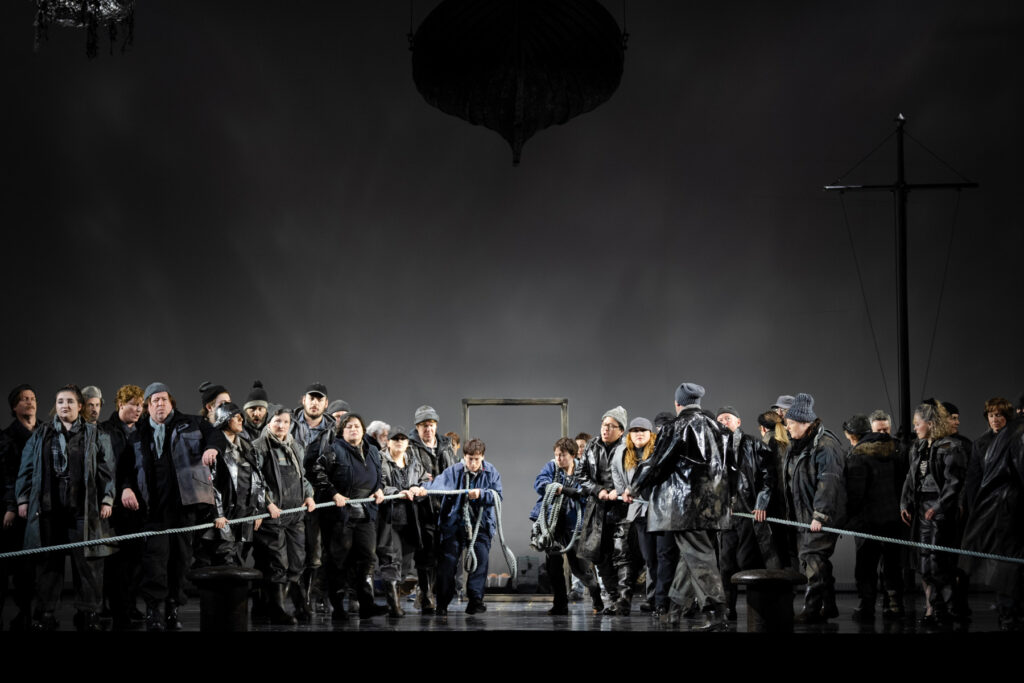
But it is the elemental power of the WNO chorus that leaves an indelible imprint and might even convince the Establishment that this beleaguered company, threatened by vicious funding cuts, is second to none. Finally, a word for Tomáš Hanus who shaped the music’s emotional turmoil and savage energy with total assurance, teasing out the score’s dark sonorities and enabling perfect balance between pit and stage. Altogether, it’s a magnificent show.
David Truslove
Peter Grimes
Opera in three acts with a Prologue
Libretto by Montague Slater
Music by Benjamin Britten:
Cast and production staff:
Peter Grimes – Nicky Spence; Ellen Orford – Sally Matthews; Captain Balstrode – David Kempster; Ned Keene – Dominic Sedgwick; Bob Boles – Oliver Johnston; Auntie – Dame Sarah Connolly; First Niece – Fflur Wyn; Second Niece – Eiry Price; Mrs Sedley – Catherine Wyn-Rogers; Swallow – Sion Goronwy; Rev. Horace Adams – Jeffrey Lloyd Roberts; Hobson – Callum Thorpe; Dr Crabbe – Helen Jarmany; John – Grimes’ Apprentice – Maya Marsh, Dance Ensemble – Maya Marsh, Sarah Hirsch, Ellie McDonald, Kim Noble, Olivia Foskett
Director – Melly Still; Associate Director – Joseph Alford; Sets – Chiara Stephenson; Costumes – Ilona Karas; Lighting – Malcolm Rippeth; Fight Director – Maisie Carter; Chorus Master Frederick Brown; Chorus and Orchestra of Welsh National Opera; Conductor – Tomáš Hanus
Millennium Centre, Cardiff, Wales, 5 April 2025
Top image: Nicky Spence as Peter Grimes.
All photos © Daffyd Owen